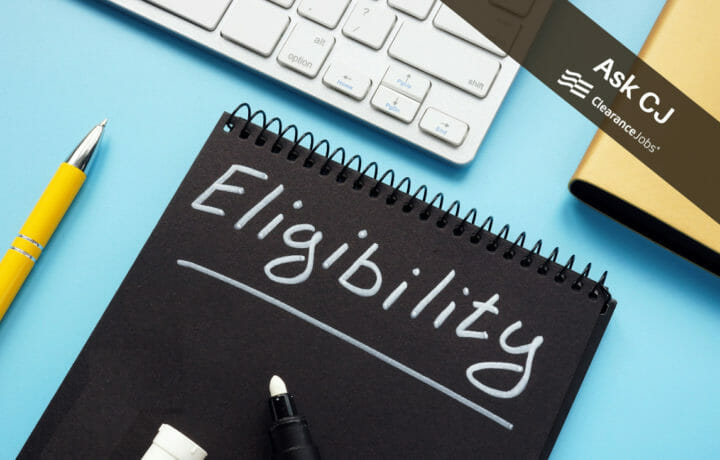As you are navigating the job search in the cleared arena, you may be scouring the screen for security clearance requirements if you are seeking a specific level or if you are in need of an entity to sponsor you. What is the difference between having a security clearance versus being eligible for one?
The question puzzles green applicants and frustrates veteran recruiters if an applicant doesn’t know the answer and wrongfully applies.
Marko Hakamaa, Official Moderator of the ClearanceJobsBlog, posed the question a few years ago on the discussion board.
HAVING A SECURITY CLEARANCE
Having a security clearance or the need to access classified information is pretty cut and dry. Essentially, if your clearance is active, it means your present job requires the use of a clearance.
If a job requires a security clearance and you are currently working in a role that requires the same clearance level, you certainly meet the hard requirement (unless you have an incident report on your record that is about to be investigated…that’s another story).
ELIGIBLE FOR CLEARANCE
Eligibility, on the other hand, is a determination that an individual is willing to protect classified information while maintaining a sensitive position in defense. Many job applicants think they are cleared but may find through Facility Security Officer’s checking their credentials in DISS (via a social security number) that they are in fact only eligible for security clearance. Hakamaa notes on the ClearanceJobsBlog that “just because there is a completed investigation that was favorably reviewed and adjudicated does not mean you have a clearance, rather it just means you are eligible for one.” A closed investigation is only one of the many steps towards obtaining an active security clearance.
The other side to this coin is when employers advertise this in their job descriptions:
“Must be able to obtain a security clearance.”
This essentially means the company is willing to sponsor those that apply and do not meet the security clearance requirements at the time of application, but are an active citizen who wish to embark on the journey to obtain clearance.
To obtain a security clearance, you must be a U.S. citizen (non-U.S. citizens are not able to obtain a security clearance but may be granted a Limited Access Authorization in some circumstances) and meet the adjudicative criteria for sensitive positions.




